* NEW LOOK, SAME GREAT PRODUCTS *
Vitamins!I love them. They have everything you need for your immune system in 1 capsule instead of opening several bottles and choking down giant pills. I will continue using these products forever. I love the alkaline structured silver products as well. This is the best company I have ever dealt with. Other companies never get my orders correct, but these peeps are always on top of it. Thank you Ameo for keeping us healthy during these uncertain times.

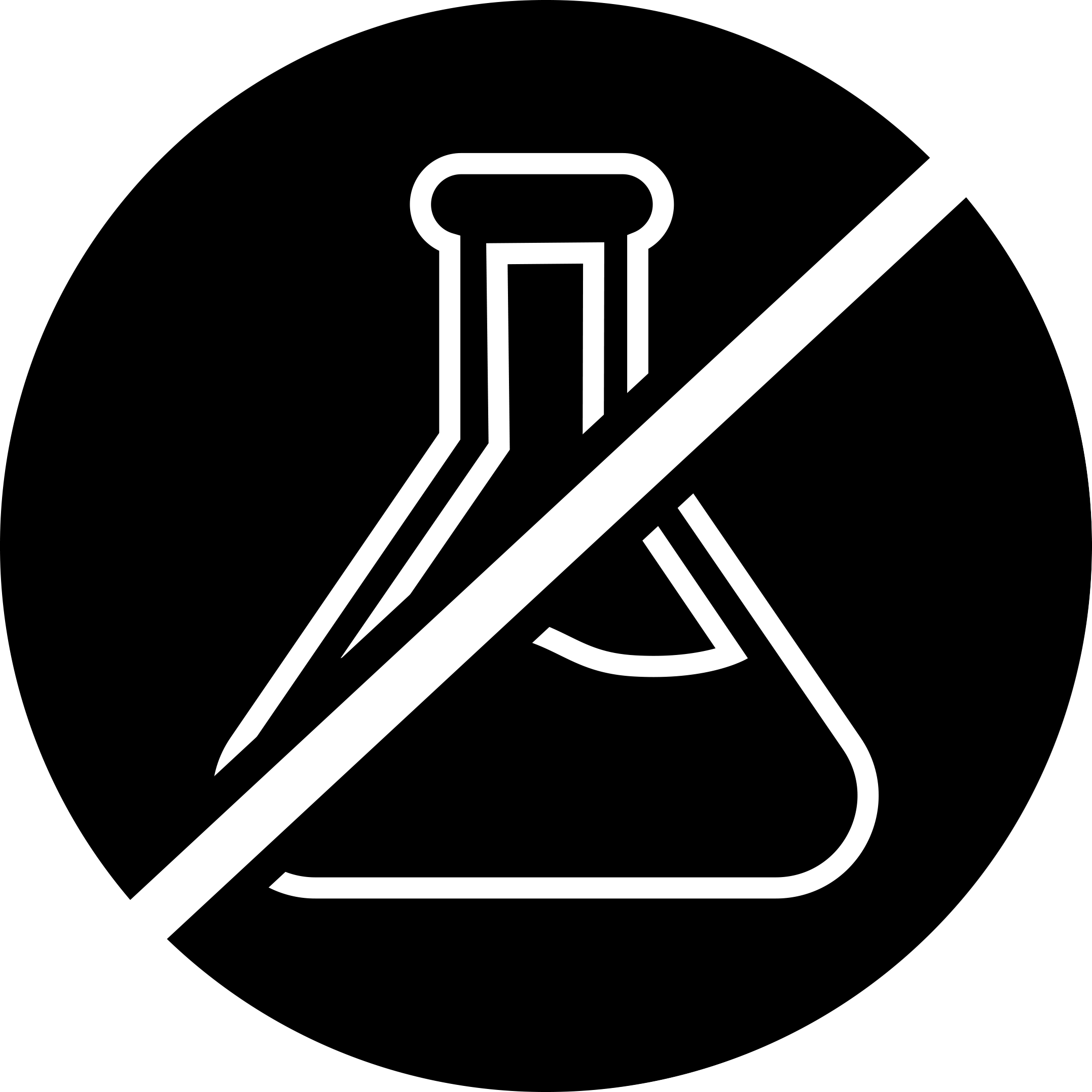

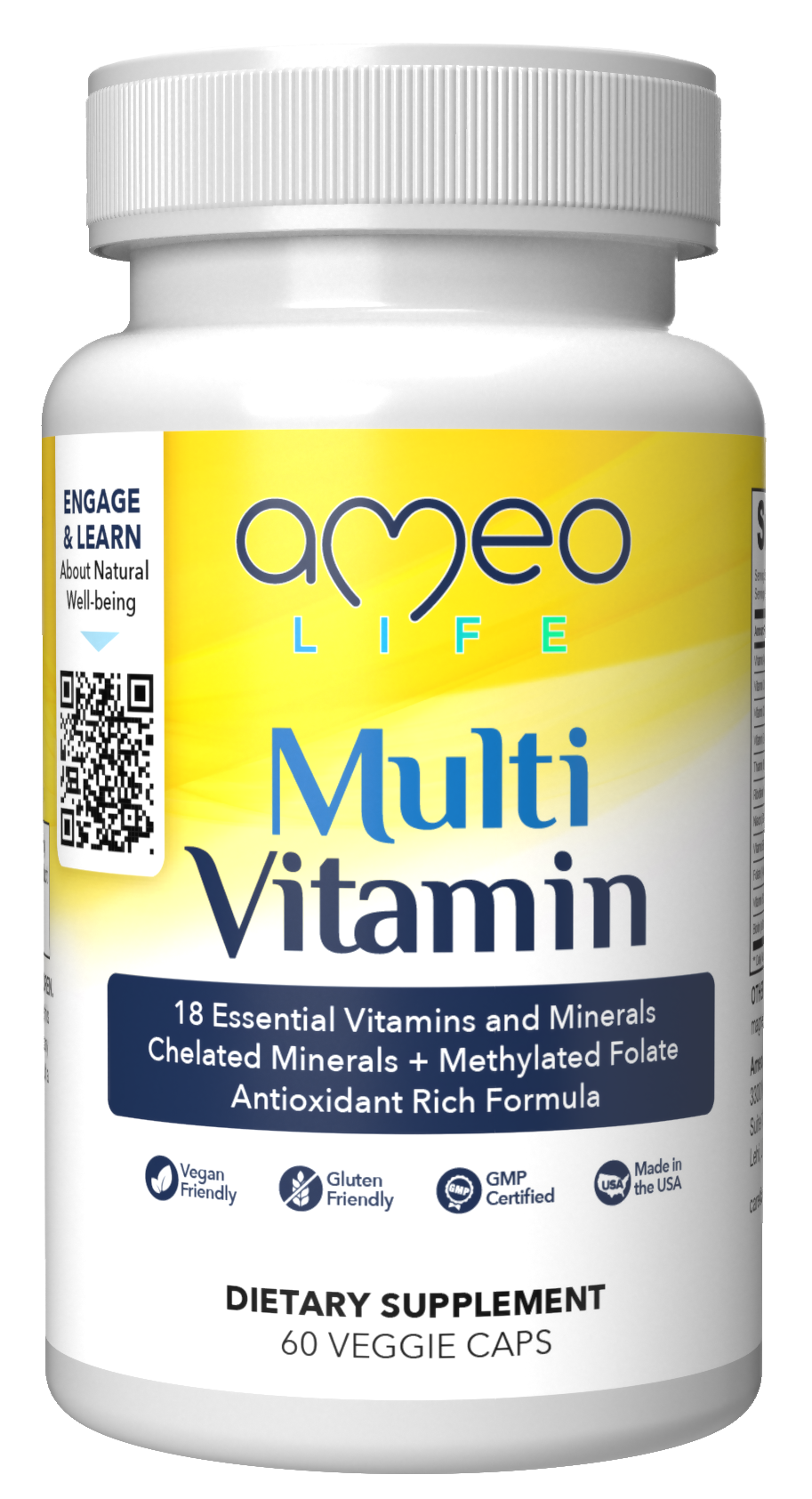



Complete
Ameo Life delivers a powerful daily Chelated Multivitamin packed with 18 essential vitamins and minerals. Our proprietary formula contains chelated minerals and methylated folate for added bioavailability, and is rich in the natural antioxidants Vitamin C, Vitamin E and Alpha Lipoic Acid.
$42.95
Free U.S. Shipping on orders over $99.
 No-Risk Purchase
No-Risk Purchase 60 Day Money Back Guarantee
 Secure Checkout
Secure Checkout 
 All Cards Accepted
All Cards Accepted 
X
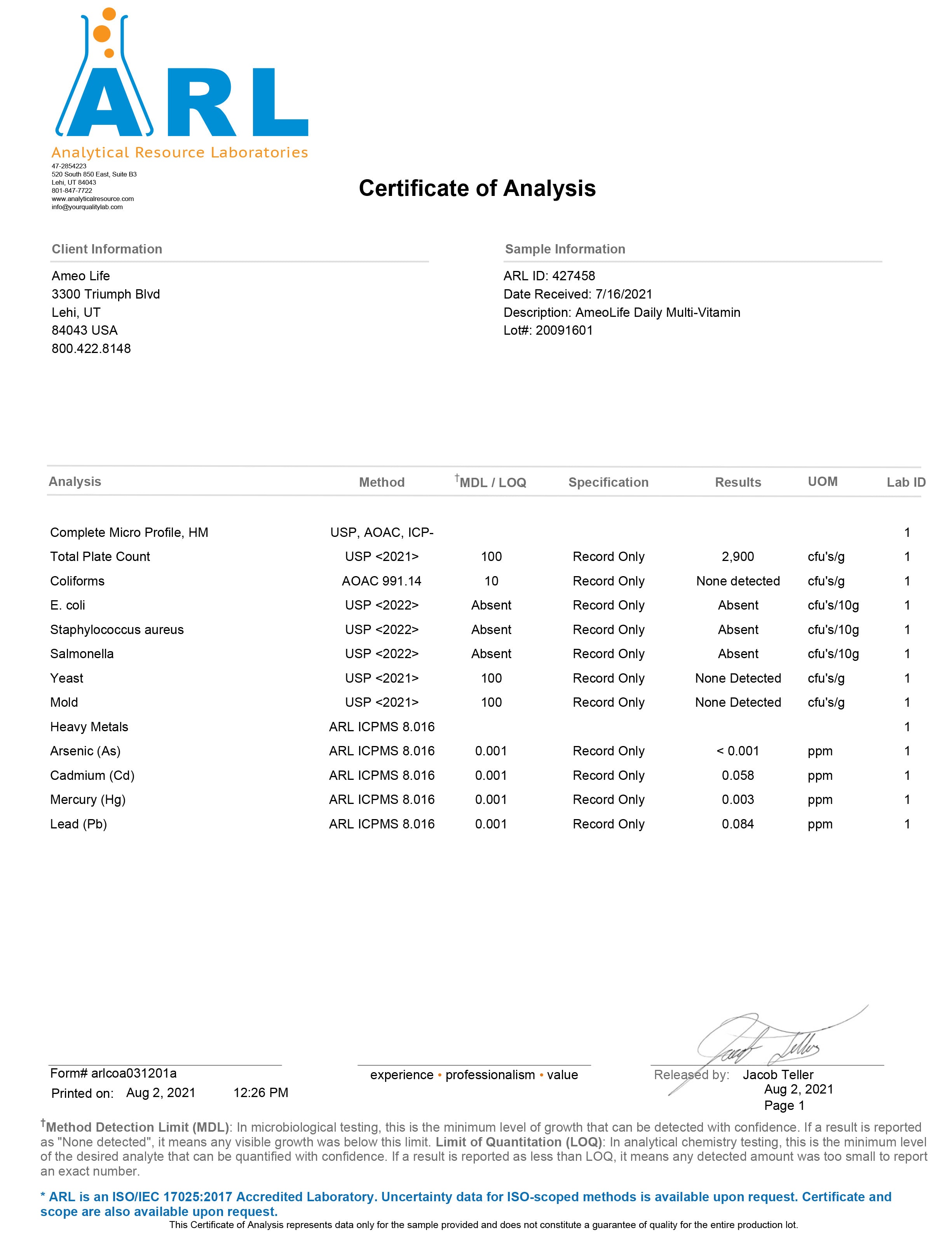



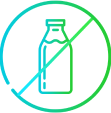

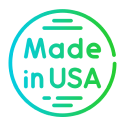
Vitamin
Vitamin A is a fat-soluble vitamin that is naturally present in many foods. It is important for our vision, immune system, and reproduction. Vitamin A also helps the heart, lungs, kidneys, and other organs work properly. Best food sources are dairy products, beef and fish liver, and sweet potatoes.
Vitamin
Vitamin C, also known as ascorbic acid, is necessary for the growth, development and repair of all body tissues. It is involved in many body functions, including formation of collagen, absorption of iron, the proper functioning of the immune system, and the maintenance of cartilage, bones, and teeth. Best food sources are citrus fruits, berries, peppers, broccoli and brussels sprouts.
Vitamin
Cholecalciferol, also known as vitamin D3 is a type of vitamin D which is made by the skin when exposed to sunlight; it is also found in salmon, sardines, herring, liver, and egg yolk. Vitamin D helps regulate the amount of calcium and phosphate in the body. These nutrients are needed to keep bones, teeth and muscles healthy.
Vitamin
Vitamin E is the collective name for a group of fat-soluble compounds with distinctive antioxidant activities. Vitamin E is a nutrient that is important to vision, reproduction, and the health of your blood, brain and skin. Nuts, seeds, and vegetable oils are among the best sources of alpha-tocopherol.
Vitamin
Thiamine is also called vitamin B1. Vitamin B1 is found in many foods including beans, lentils, nuts, and seeds. It is essential for glucose metabolism, and it plays a key role in nerve, muscle, and heart function.
Vitamin
Riboflavin is a yellow vitamin of the B complex which is essential for metabolic energy production. It is present in many foods, especially milk, liver, eggs, and green vegetables, and is also synthesized by the intestinal flora.
Vitamin
Niacin is a B vitamin that is made and used by your body to turn food into energy. It helps keep your nervous system, digestive system and skin healthy. Foods rich in niacin include liver, meat, poultry and avocado.
Vitamin
Vitamin B6, also known as pyridoxine, is a water-soluble vitamin that your body needs for several functions. It’s significant to protein, fat and carbohydrate metabolism and the creation of red blood cells. Your body cannot produce vitamin B6, so you must obtain it from foods or supplements. Food sources include beef liver, tuna, salmon, chickpeas and poultry.
Vitamin
Folate, also known as vitamin B9, is found in a wide range of foods including vegetables, legumes, eggs, and fruit. Folate is needed to make red and white blood cells in the bone marrow, convert carbohydrates into energy, and produce DNA and RNA. Adequate folate intake is extremely important during periods of rapid growth such as pregnancy, infancy, and adolescence.
Vitamin
Vitamin B12 is a water-soluble vitamin that is naturally present in animal products, including fish, meat, poultry, eggs and dairy products. Vitamin B12 exists in several forms and contains the mineral cobalt, so compounds with vitamin B12 activity are collectively called “cobalamins”. It is required for proper red blood cell formation, neurological function, and DNA synthesis.
Plant Based
Biotin, also known as vitamin H, is one of the B complex vitamins that help the body convert food into energy. B vitamins, and specifically biotin, help keep your skin, hair, eyes, liver, and nervous system healthy
Plant Based
Cellulose capsules are vegetarian capsules that are made from the fibers of plants. Being odorless, colorless and tasteless they are considered the “most natural” form of capsule, delivering their contents into the body in a manner that will have no negative effects on the digestive system, or interfere with any dietary options.
Mineral
Dicalcium phosphate contains calcium—essential for healthy bones, muscles, heart and blood—and phosphorus—essential for healthy bones, teeth and cells. Phosphate is a natural mineral and the product of oxygen and phosphorus combined. It helps your body form bones and teeth, cell membranes and DNA.
Mineral
Silica is a mineral that is a combination of silicon and oxygen. Silica is added to supplements as an additive, it serves as an anti-caking agent to avoid clumping and is used to prevent the various powdered ingredients from sticking together when blended. Silica has also been known to assist calcium and magnesium metabolism, which is crucial for balanced hormones, strong muscles and a healthy heart.
Vitamin
Pantothenic acid is also known as vitamin B5. Pantothenic acid is important for our bodies to properly use carbohydrates, proteins and lipids, and for healthy skin. The best food sources are shiitake mushrooms, salmon, avocado, chicken breast and sunflower seeds.
Vitamin
Iodine is a vital micronutrient required at all stages of life. Iodine is essential for the synthesis of thyroid hormones, which play a vital role in the process of early growth and development of most organs, especially the brain. Because iodine is so essential to life, and deficiency seems to be widespread, supplementation is commonly recommended by physicians. Dietary sources include iodized (table) salt, eggs, beans, fish and seaweed.
Vitamin
Zinc is an essential micronutrient vital to your health. It helps your immune system defend against viruses and bacteria, helps your body make DNA, and supports your sense of smell and taste. Because it’s difficult to efficiently absorb, we use a chelated form of zinc to improve bioavailability. Shellfish, pumpkin seeds and red meat are also good sources of zinc.
Vitamin
Selenium is an antioxidant that plays a critical role in metabolism and thyroid function. It helps protect your body from damage caused by oxidative stress. Formulated in the superior amino acid chelate form, selenium glycinate complex has a high level of stability, which allows for enhanced absorption in the gastrointestinal system. Brazil nuts, seafood and organ meats are high in selenium.
Mineral
Manganese is a trace mineral necessary for the production of several enzymes and antioxidants that fight free radical damage and aid in carbohydrate and lipid metabolism. Manganese is also needed for a healthy nervous system and brain function. Mussels, rice, beans and nuts are good sources of manganese.
Mineral
Chromium is a required trace mineral found to enhance the action of insulin in the body. It may be effective at improving the body's response to insulin or lowering blood sugar in those with diabetes. What's more, it may help reduce hunger, cravings and binge eating. Broccoli, liver and brewer’s yeast are the best sources of chromium in the diet.
Mineral
Molybdenum is an essential mineral found in high concentrations in beans, lentils and grains. It activates enzymes that help break down harmful sulfites and prevent toxins from building up in the body.
Vitamin
Alpha-lipoic acid is an antioxidant that helps turn glucose into energy. Antioxidants attack “free radicals” which are the waste products created when the body converts food into energy. Alpha-lipoic acid is both water- and fat-soluble, which allows it to work in every cell or tissue in the body. Meanwhile, most other antioxidants are either water- or fat-soluble. Alpha Lipoic Acid is normally made by the body naturally. However due to decreases in health, and a shortage of pure nutrients in today's foods, further supplementation of Alpha Lipoic Acid is required. The antioxidant properties of alpha-lipoic acid have been linked to several benefits, including lower blood sugar levels, reduced inflammation, slowed skin aging, and improved nerve function.
Mineral
Boron is naturally found in leafy green vegetables like kale and spinach. Boron can also be found in grains, prunes, raisins, non citrus fruits and nuts. Boron helps the body metabolize key vitamins and minerals as well plays a key role in bone health.
Mineral
Vanadium is a trace mineral element found in the earth's crust as well as in mushrooms, shellfish, black pepper, parsley, grains and pure water. Often associated in use for athletic performance, vanadium also is believed to assist with balancing blood sugar levels.

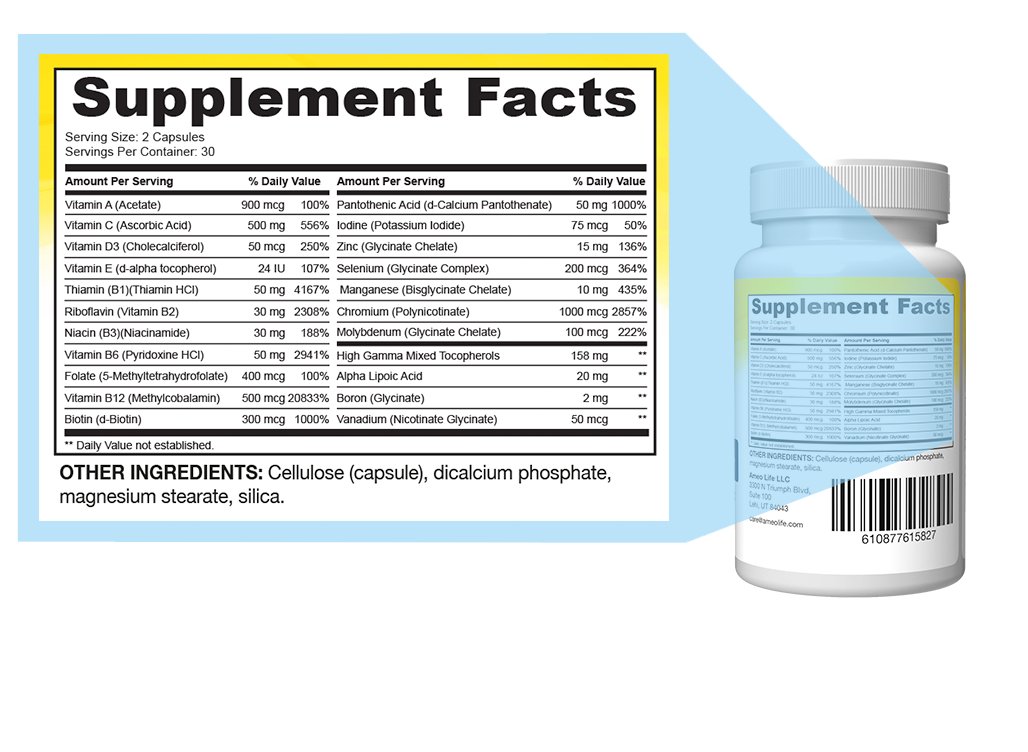






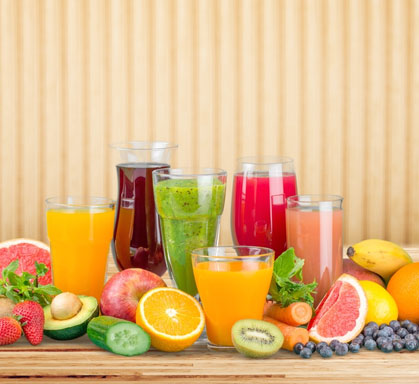
Vitamins & Minerals Directly
From Natural Sources

If you have taken multivitamins in the past, you may recall giant, rock hard tablets that were difficult to swallow. These older forms of multivitamins were also difficult for the body to digest and assimilate, and in many cases contained useless binding agents and fillers.
Ameo Life delivers a new form of multivitamin, containing essential vitamins and minerals in an easy to swallow vegetarian capsule.
Solution #1 - Methylated Folate

One of the challenges facing multivitamin supplements is absorption and bioavailability. Unfortunately, many of today's multivitamin options are formulated with the least expensive forms of vitamins in mind, however there is little benefit to taking vitamins your body can’t utilize.
At Ameo Life, we have included the most active form of Vitamin B9 (folate) to help the highest number of people, including those with the MTHFR mutation. By taking a methylfolate supplement instead of cheaper folic acid, you are providing the body with active folate it can use right away.


Solution #2 -
Chelated Minerals

Did you know that the body requires a proper amount of minerals in order to achieve the benefits of vitamins? Most vitamins and minerals within your body exist in a synergetic relationship. Others compete for absorption, which is why we carefully selected each vitamin and mineral in our formulation.
Ameo Life also incorporates chelated minerals into our formulation, which helps overcome the challenges with mineral absorption. Chelation is a process that binds minerals to an organic or amino acid, making them more bioavailable to the body.
Ameo Life delivers the finest Chelated Multivitamin
to support your Natural Health
Full complex of B vitamins to help with stress, and to support brain function as well
as nervous system and reproductive health

At Ameo Life, we don't hide behind confusing formulations or ingredients. We are proud of our products and love to share them with our friends and family.
Take 2 capsules daily, and get ready to the enjoy the natural benefits of Ameo Life Natural Chelated Multivitamins.
SHOP NOW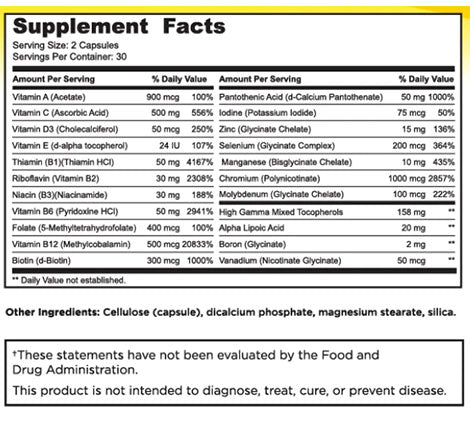
Vitamins & Minerals Directly
From Natural Sources
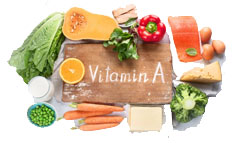
Vitamin A is a fat-soluble vitamin that is naturally present in many foods. It is important for our vision, immune system, and reproduction. Vitamin A also helps the heart, lungs, kidneys, and other organs work properly. Best food sources are dairy products, beef and fish liver, and sweet potatoes.
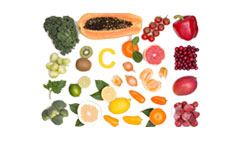
Vitamin C, also known as ascorbic acid, is necessary for the growth, development and repair of all body tissues. It is involved in many body functions, including formation of collagen, absorption of iron, the proper functioning of the immune system, and the maintenance of cartilage, bones, and teeth. Best food sources are citrus fruits, berries, peppers, broccoli and brussel sprouts.
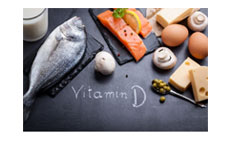
Cholecalciferol, also known as vitamin D3 is a type of vitamin D which is made by the skin when exposed to sunlight; it is also found in salmon, sardines, herring, liver, and egg yolk. Vitamin D helps regulate the amount of calcium and phosphate in the body. These nutrients are needed to keep bones, teeth and muscles healthy.
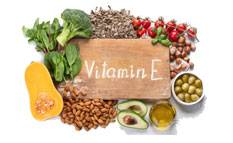
Vitamin E is the collective name for a group of fat-soluble compounds with distinctive antioxidant activities. Vitamin E is a nutrient that is important to vision, reproduction, and the health of your blood, brain and skin. Nuts, seeds, and vegetable oils are among the best sources of alpha-tocopherol.
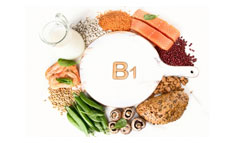
Thiamine is also called vitamin B1. Vitamin B1 is found in many foods including beans, lentils, nuts, and seeds. It is essential for glucose metabolism, and it plays a key role in nerve, muscle, and heart function.
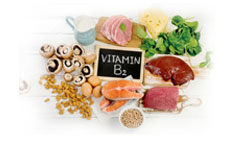
Riboflavin is a yellow vitamin of the B complex which is essential for metabolic energy production. It is present in many foods, especially milk, liver, eggs, and green vegetables, and is also synthesized by the intestinal flora.

Niacin is a B vitamin that is made and used by your body to turn food into energy. It helps keep your nervous system, digestive system and skin healthy. Foods rich in niacin include liver, meat, poultry and avocado.
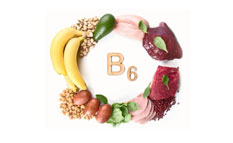
Vitamin B6, also known as pyridoxine, is a water-soluble vitamin that your body needs for several functions. It’s significant to protein, fat and carbohydrate metabolism and the creation of red blood cells. Your body cannot produce vitamin B6, so you must obtain it from foods or supplements. Food sources include beef liver, tuna, salmon, chickpeas and poultry.
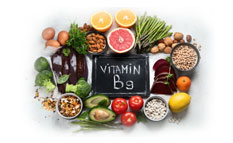
Folate, also known as vitamin B9, is found in a wide range of foods including vegetables, legumes, eggs, and fruit. Folate is needed to make red and white blood cells in the bone marrow, convert carbohydrates into energy, and produce DNA and RNA. Adequate folate intake is extremely important during periods of rapid growth such as pregnancy, infancy, and adolescence.
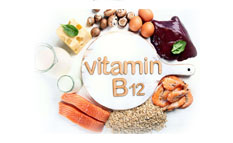
Vitamin B12 is a water-soluble vitamin that is naturally present in animal products, including fish, meat, poultry, eggs and dairy products. Vitamin B12 exists in several forms and contains the mineral cobalt, so compounds with vitamin B12 activity are collectively called “cobalamins”. It is required for proper red blood cell formation, neurological function, and DNA synthesis.
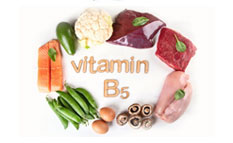
Pantothenic acid is also known as vitamin B5. Pantothenic acid is important for our bodies to properly use carbohydrates, proteins and lipids, and for healthy skin. The best food sources are shiitake mushrooms, salmon, avocado, chicken breast and sunflower seeds.

Iodine is a vital micronutrient required at all stages of life. Iodine is essential for the synthesis of thyroid hormones, which play a vital role in the process of early growth and development of most organs, especially the brain. Because iodine is so essential to life, and deficiency seems to be widespread, supplementation is commonly recommended by physicians. Dietary sources include iodized (table) salt, eggs, beans, fish and seaweed.
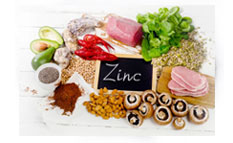
Zinc is an essential micronutrient vital to your health. It helps your immune system defend against viruses and bacteria, helps your body make DNA, and supports your sense of smell and taste. Because it’s difficult to efficiently absorb zinc on its own, we use a chelated form of zinc to improve bioavailability. Shellfish, pumpkin seeds and red meat are also good sources of zinc.
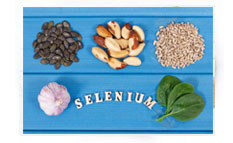
Selenium is an antioxidant that plays a critical role in metabolism and thyroid function. It helps protect your body from damage caused by oxidative stress. Formulated in the superior amino acid chelate form, selenium glycinate complex has a high level of stability, which allows for enhanced absorption in the gastrointestinal system. Brazil nuts, seafood and organ meats are high in selenium.
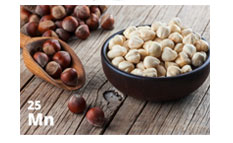
Manganese is a trace mineral necessary for the production of several enzymes and antioxidants that fight free radical damage and aid in carbohydrate and lipid metabolism. Manganese is also needed for a healthy nervous system and brain function. Mussels, rice, beans and nuts are good sources of manganese.
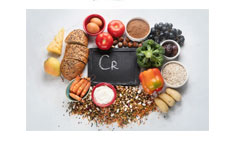
Chromium is a required trace mineral found to enhance the action of insulin in the body. It may be effective at improving the body's response to insulin or lowering blood sugar in those with diabetes. What's more, it may help reduce hunger, cravings and binge eating. Broccoli, liver and brewer’s yeast are the best sources of chromium in the diet.
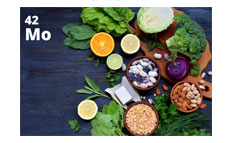
Molybdenum is an essential mineral found in high concentrations in beans, lentils and grains. It activates enzymes that help break down harmful sulfites and prevent toxins from building up in the body.
An Honest Supplement Brand
You Can Trust
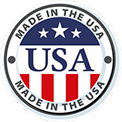
All Ameo Life products are made with pride right here in the USA.
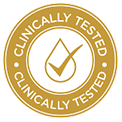
Ameo Life products are 3rd party lab tested to ensure quality control.
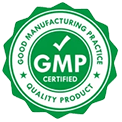
Our certified GMP facilities ensure the highest standards of purity.
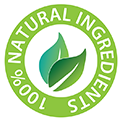
All products are formulated with the finest premium quality ingredients.

Our #1 priority at Ameo Life is your happiness. We are proud to have incredibly loyal customers who love our products, and we're confident you will, too.
If you have a problem, we'll solve it. Whatever it takes. Just reach out to our Customer Care Team. Satisfaction. Guaranteed.
Find Out Why Happy Customers
Love Ameo Life Probiotics
Still Have Questions?
Minerals are a type of nutrient that your body needs to function properly. As your body cannot produce minerals, you must obtain them through your diet.
Chelated minerals are minerals that have been combined with amino acids to make them more easily utilized within the body. Some research suggests that taking chelated minerals may reduce the total amount required to reach healthy blood levels.
Folic acid is a synthetic version of Vitamin B9 (folate). Vitamin B-9 is important in red blood cell formation and for healthy cell growth and function. This nutrient is crucial during early pregnancy to reduce the risk of birth defects.
It is estimated that between 25 and 60 percent of the population have a variation in one of their MTHFR genes that negatively impacts their ability to convert folic acid (the synthetic version of B9) into the active form of folate. Folate is natural, and much more easily absorbed in the gut.
The RDA (recommended daily allowance) for many vitamins is very low, and can be inadequate for optimal health. Often the RDA can be seen as the very 'minimum' requirement.
Calcium and magnesium are considered macro-minerals (macro is Greek for 'large'). Your body needs much larger daily amounts of macro-minerals, which would make our capsules more difficult to swallow. You may want to consider purchasing calcium & magnesium separately, if needed.
Not everyone requires supplemental iron, as most people obtain adequate quantities of this mineral in their diet. Since iron supplementation has been known to cause upset stomach, nausea, constipation and diarrhea, we have chosen not to include it in our formula.
B-12 is a water soluble vitamin and there is very little concern with taking larger amounts. If not required by the body, any excess will be harmlessly flushed out of the system. Those who are eating a plant-based diet, indulging in too much alcohol, or suffering from gut issues or parasites, are most likely to be deficient in vitamin B-12.
Complete Your Health & Wellness Stack
Recommended Products
© 2024 Ameo Life